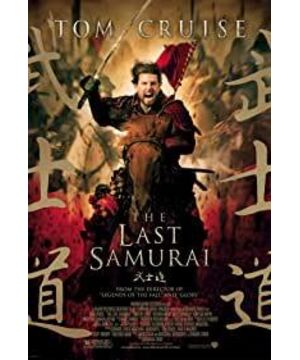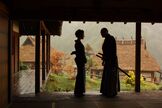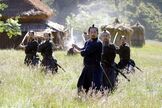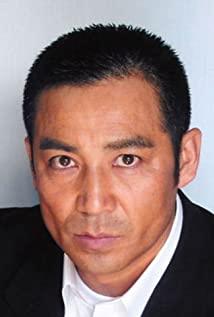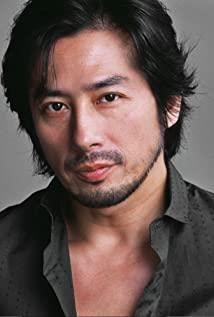We cannot compare to the Western world that has gone through the Renaissance, nor can we compare to our neighbor, Japan. This is a country that is easy for people to think about, especially for us, China. Since the Sino-Japanese War of 1894-1895, this stripped country and nation has always been the focus of our nation’s thinking and emotions. We want to know what is so firm and cruel to dominate this country. But we don’t want to admit that what we have explored and is likely to be the correct answer—although it is only a partial answer, this may wipe out our will and determination to catch up. Needless to say, this is the character and belief of the nation...
The film involves two world countries in the 19th century: the United States in the New World and Japan in the Meiji Restoration. The background is very interesting. The design of the war scene is not bad. I have always liked watching Hollywood wars and magical films of the Cold Weapon Age, because it makes me feel "blood is hot". For example, "Brave Heart", "The Lord of the Rings Trilogy" and so on. I have always had a question: we are not surprised that a class of knights will be born in Europe before the civilization of the Middle Ages, but the Japanese archipelago in East Asia, once bathed in Chinese culture and wind, will give birth to a class of warriors, which is known to the world. China is very different. There has never been a "professional soldier" similar to knights and samurai in China in feudal society. What is the root of this? Or is it also a reason for deep culture? Little is known. The most representative equipment of the Japanese samurai is the Japanese sword, which is very sharp in the film, especially in the section where Olgen killed several former samurai who followed him, and the performance of the samurai is very essence: fast, fierce. At that time, the relevant smelting technology in Japan was already relatively high, so Japanese swords were so sharp. But after all, he couldn't resist the guns. In addition, the bow and arrow, another weapon in the film, is also very impressive-no wonder that the appearance of bow and arrow in the cold weapon era even changed the way of fighting.
All going forward.
I feel that the film and "Dancing with Wolves" seem to have the same performance, and there is an unspeakable tacit understanding. I think of another interesting place: in this film, "Dancing with Wolves" and "Pony Fairy", the American soldiers' outfits at that time were really special: high riding boots and tights.
However, some of the shots in this film seem to have become the style of Chinese directors: for example, people die and flowers fall. Always, for Hollywood directors, I call this an accidental mistake, and for Chinese directors, I call it a deliberate mistake-if not mentally retarded. Shots similar to those in the film seem to be rare in Hollywood-style movies. It seems that learning from the East to the West will cause Chinese directors to have a certain "pleasure."
The Japanese woman Gaozi is impressive, and it is consistent with our Chinese (probably the people of the world) always feel. I do not agree with the attitude and criticism of our country’s education towards this phenomenon. This is the inevitable result and a certain degree of continuation of the social division of labor when productivity is low. Perhaps this is the traditional pastoral life. I even suspect that Japan's transformation into a powerful country has a direct relationship with this: all men devote themselves to work without being distracted by household chores.
Generally speaking, this film is good, let’s watch it easily-when you unknowingly become weak and weak and you seem to be able to feel the change, I suggest you take a look at the so-called Hollywood movies. Blockbuster.
It may be blown, but it is not fake.
View more about The Last Samurai reviews


